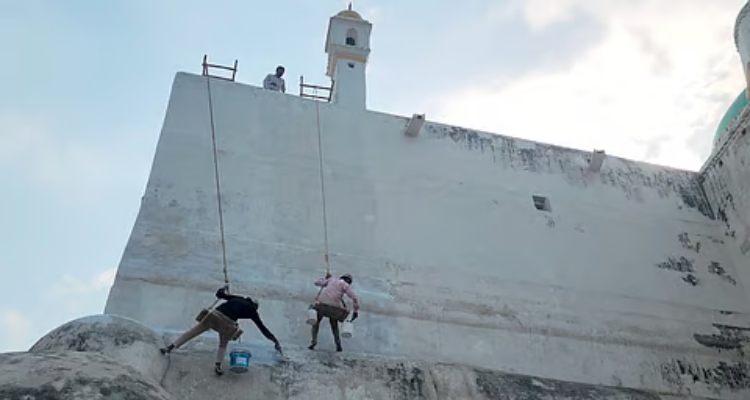
The Supreme Court on Tuesday refused to entertain a plea challenging an Allahabad High Court order directing the Archaeological Survey of India to whitewash the Mughal-era Jama Masjid in Sambhal district, Uttar Pradesh.
Court’s Decision
A bench comprising Chief Justice Sanjiv Khanna and Justice Sanjay Kumar dismissed the plea, stating, “We are not inclined to entertain the present petition. Dismissed.” The petition was filed by Satish Kumar Aggarwal, who had opposed the High Court’s directive.
High Court’s Order & Directions
The Allahabad High Court had passed its order on March 12, instructing the ASI to complete the whitewashing of the mosque within a week. The court also emphasized that no additional lighting should be installed on the walls to prevent potential damage to the monument. However, it permitted the use of exterior lights, such as focus lights or LED lights, to illuminate the outer area of the mosque.
In addition, the High Court directed that the Masjid Committee would bear the expenses for the whitewashing, with the ASI responsible for reimbursing the costs within a week after the work’s completion.
Legal Arguments & Concerns
During the hearing, Barun Sinha, representing Aggarwal, argued that the High Court’s order was flawed as it wrongly directed the ASI to whitewash the mosque’s walls.
Earlier, the High Court had asked the ASI’s counsel to provide specific details on how the whitewashing might cause prejudice to the historical monument. This directive was part of a broader legal inquiry into the preservation and maintenance of the mosque’s structure.
Previous Controversy
Court’s decision came after a court-mandated survey of the Mughal-era mosque, which had earlier sparked tensions and led to violence in Sambhal last year. The survey, conducted under judicial supervision, had attracted significant public attention due to its implications for religious and cultural heritage sites.
With the Supreme Court rejecting the plea, the High Court’s directive stands, and the ASI is expected to proceed with the whitewashing work as ordered. The case reflects the ongoing legal and societal debates surrounding the preservation of historical monuments, especially those with religious significance.
The situation continues to stir discussions on balancing heritage conservation with religious sentiments, and the judicial system’s role in navigating these complex issues.
Read More: Supreme Court, Delhi High Court, States High Court, International




